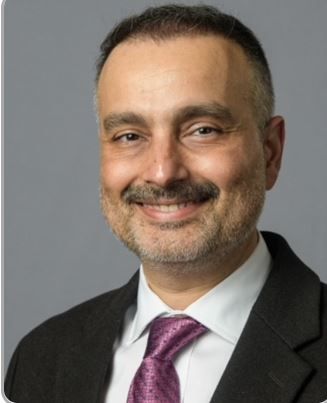- Clinical Technology
- Adult Immunization
- Hepatology
- Pediatric Immunization
- Screening
- Psychiatry
- Allergy
- Women's Health
- Cardiology
- Pediatrics
- Dermatology
- Endocrinology
- Pain Management
- Gastroenterology
- Infectious Disease
- Obesity Medicine
- Rheumatology
- Nephrology
- Neurology
- Pulmonology
Monotherapy with Rifaximin vs Lactulose More Effective for Reducing Recurrence of Overt Hepatic Encephalopathy: New Post Hoc Analysis
Rifaximin monotherapy may also confer a survival benefit, according to the study, which was awarded ACG Outstanding Research Award in the Liver Category.
Analysis awarded ACG Outstanding Research Award in the Liver Category
Monotherapy with rifaximin (Xifaxin; Salix Pharmaceuticals) proved more effective than monotherapy with lactulose to reduce risk of recurrence of overt hepatic encephalopathy (OHE) as well as the risk of all-cause mortality in adults with cirrhosis who experienced a prior episode of OHE.
The findings, from a new post-hoc analysis of 2 randomized controlled clinical trials, were presented during a Presidential Plenary Sessions at the American College of Gastroenterology 2024 Annual Scientific Meeting, October 25-30, in Philadelphia, PA.
Virginia Commonwealth University

Specifically, across the cohort of 270 participants (rifaximin n=125; lactulose n=145; predominantly men, mean age of 57.4 years), the proportion of rifaximin-treated participants who had a subsequent OHE episode (23.2%) was significantly lower than that of participants who received lactulose alone (49.0%; P <.001). Monotherapy with rifaximin alone for 6 months reduced the risk of a breakthrough episode of OHE by 60% vs treatment with lactulose monotherapy (number needed to treat [NNT], 4), according to the abstract.
Investigators also reported a significantly lower rate of mortality in the rifaximin vs lactulose monotherapy cohorts (1.6% vs 4.8%; P <.001), with a NNT of 19 (HR, 0.048; 95% CI, 0.01-0.29). Over the follow-up period after treatment of 14 days there were 2 deaths among participants treated with rifaximin and 10 among those in the lactulose monotherapy group, according to the study abstract. In terms of disease severity among participants who died, 2 of those treated with lactulose monotherapy were classified as Child-Pugh (C-P) class A, 9 had a C-P score placing them in C-P class B (rifaximin, n=2; lactulose n=7), and 1, from the lactulose group, had decompensated disease, ie, C-P class C. According to the study results, a single participant in each treatment group had a Model for End-Stage Liver Disease (MELD) score of 19 or more (range, 6 to 40) at baseline.
Early study discontinuation was more common among lactulose- vs rifaximin-treated participants (62.1% vs 36.0%), the researchers reported, with the reason most commonly cited as HE recurrence. Rifaximin monotherapy was well tolerated.
Presenting author Jasmohan S. Bajaj, MD, MS, professor of medicine, division of gastroenterology, hepatology, and nutrition, Virginia Commonwealth University School of Medicine in Richmond, VA, and colleagues analyzed data post hoc from 2 randomized trials, 1 a phase 3 double-blind study and the other a phase-4 open label trial. Participants when enrolled were in OHE remission, all with Conn scores of 1 or 0 on a scale of 0 to 4, reflecting the severity of neurocognitive function associated with HE. Regarding treatment at study baseline, participants were being treated with rifaximin 550 mg twice daily (no lactulose; from either phase 3 or 4 trial) or lactulose titrated per protocol plus placebo (lactulose monotherapy, phase 3 trial). First breakthrough episode of OHE (Conn score of 2 or greater) served as the primary efficacy endpoint for the current analysis and was the original primary endpoint in both original studies.
At study baseline, the median MELD score in both treatment groups was 12. Approximately half in each group were scored as C-P class B.
After a primary episode of OHE, monotherapy with lactulose is recommended as secondary prophylaxis, Bajaj and colleagues wrote in the study abstract, with rifaximin added to lactulose if in the event of a subsequent episode. Adverse effects associated with lactulose, however, are a trigger for nonadherence with the therapy; poor adherence or discontinuation of lactulose leaves the individual at risk for OHE recurrence, making a strong case for “non-lactulose-based strategies,” according to the researchers. Thus the objective of the current analysis was to study to evaluate the efficacy and tolerability of rifaximin monotherapy, the outcome showing fewer OHE recurrences among rifaximin-treated participants . “In addition, rifaximin treatment may confer a survival benefit,” authors said, concluding that rifaximin monotherapy may be an appropriate management approach in select patient populations.”
